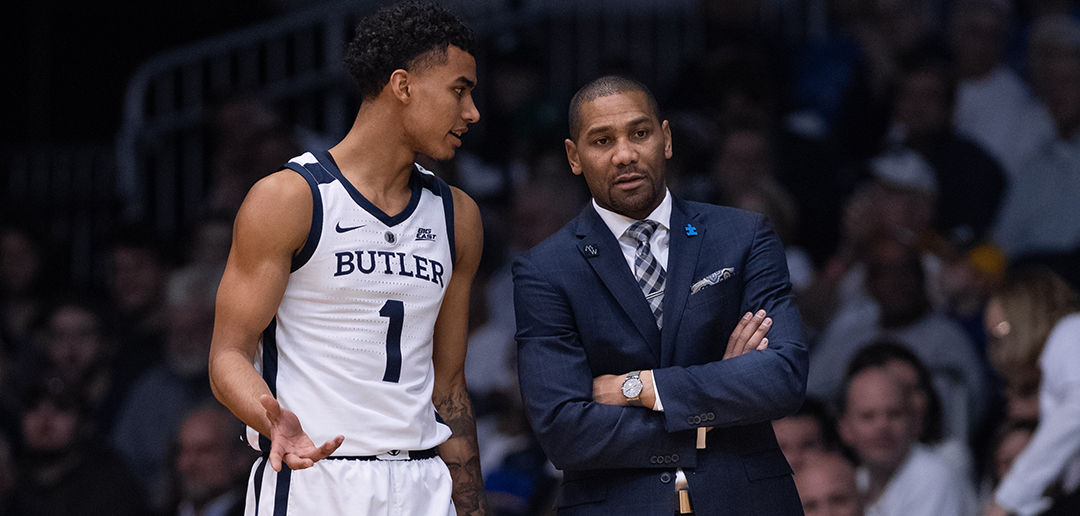I remember it like it was yesterday: it was a long, grueling journey during my sophomore year of college. I knew I had to see it through, but I was unsure what the end would hold, and my nerves tensed with each passing moment. It seemed like mile after mile after mile. Would I make it? Would I be okay? Would I wish I hadn’t taken the risk?
Confession time. It was only about a 50-foot walk down the hall to talk to somebody. But it was the destination and who that somebody was that gave the walk much more significance than the distance would let on. At the end of the hall was the office of my head football coach. And my position coach was my escort.
I had just informed my position coach about an event over the upcoming bye weekend that would cause me to miss something football related. The details now escape me. It was less important than a practice, but something still worth asking for permission to miss. Perhaps it was a film session or “voluntary” workout (we all know what that word really means in the athletic world). I wanted to attend a weekend retreat with Cru, the campus ministry I was involved with (and partner of Athletes in Action), and I had already paid for it. My position coach’s response to my request was to take the trip down to the man in charge and ask him for permission.
"I want relatable sports ministry tools!"
Looking back, maybe that was a bluff, but I called it and off we went. As I said, it was a long, grueling journey, and I was unsure what the end would hold. I ended up going and still made it back for that workout Sunday afternoon.
Asking for permission
Asking a coach for permission to do anything outside of the expected activities related to producing success on the field — including notification of a class that conflicts with practice, albeit out of one’s control and absolutely necessary to get the degree coaches claim to value so highly — is about as nerve-wracking a moment as a college athlete could face, way beyond the game-winning shot or a photo finish. Hand down. Ask any athlete around and I’d be willing to bet they’d agree.
Why was I willing to ask my coaches for permission to attend this event, perhaps risking any number of things including playing time, if it might be perceived as a lack of commitment to the team’s goals? The answer lies in a deeper issue that would cause anyone on the planet to push back on the wishes of an authority figure. That issue is individual values, specifically when our values clash with the values of those in authority.
I think there are many things outside of a sport- or school-related activity that are worth asking your coach for permission to attend. Some can be greatly beneficial to you and in turn, to the entire team. Before we get to what some of those may be, we need to take a deeper look at why so often athletes do not even consider making such a request.
The concept of defining and sticking to one’s individual values can be understood well under the umbrella of what many psychologists call differentiation. The Townsend Institute for Leadership and Counseling defines differentiation as “the ability to experience oneself as separate from others, or ‘differentiate’ oneself, with personal values, thoughts, feelings and choices, and to express one’s separateness in relationship.” In his book Emotionally Healthy Relationships Day by Day, Peter Scazzero writes that differentiation “refers to a person’s capacity to define his or her own life goals and values apart from the pressures of those around him.” It allows someone to “make healthy choices before God without being controlled by the approval or disapproval of others.”
That sounds like a great definition and a freeing way to live! If only I could live that out on a daily basis. The rub is when our individual values and the approval of others are in conflict with each other. What are we to do?
Know your values
We must understand that God has designed and wired each of us differently. And different doesn't mean wrong, bad, worse or “less than.” Different just means different. (That piece of wisdom there is for free!)
Yet too often when we encounter someone who is different from us in appearance, speech, dress or values, we tend to think that we have nothing in common and therefore no shared interests or struggles. We may assume the “different” person has little potential of adding value to our lives, and so we view them as unsafe. Instantly a barrier is constructed.
Instead, we ought to see them as sharing the image of God that has also been wired into us. We do have shared humanity, triumphs and struggles. The other person might be a safe person with whom we could develop a mutually-sharpening friendship, despite our differences.
This type of perspective, I believe, gives us the freedom to own our individual values, even if they are different from others’. We can embrace, nurture and strengthen our values while seeking to understand and even celebrate the values of another. It also enables us to know when our values are being threatened and when we need to speak up in order to protect them. We need to be able to stick to our values even under pressure from those around us, especially pressure from authority figures.
Jesus modeled this beautifully throughout His public ministry. He was constantly being pressured by His disciples and family, the crowds and religious leaders, and even the soldiers who crucified Him. They all wanted Him to be someone He wasn’t, to fit into their expectations and adhere to their values. But He didn’t. He remained faithful to who He was and to His values, namely doing His Father’s will. And He calls us to do the same, even when it costs us greatly, as it did Him.
So back to my story. Why did I take that long walk down the hallway? First off, don’t get it twisted. At the time, I wasn’t aware of any of the stuff I just wrote way back then. I had a life-changing time at the same retreat the year before (when there was not a conflict) and wanted to experience it again. But, it was also because I deeply valued my spiritual growth and I knew the retreat would be a deeply significant weekend in furthering that. I also knew that as I continued to grow in my relationship with Jesus, He would have an impact on my team through me. So, with God’s help, in a bit of fear and trembling, I stuck to my values and simply asked my coach, leaving it up to him to say yes or no, either of which I would have submitted to.
I fully understand your situation may be different. And at the end of the day, coach does hold a lot of power. You will need to weigh the options and consequences of either answer and determine what your next step will be. My strongest encouragement would be to make that choice based on your values, not coach’s. Easier said than done.
Conversation starters
This leaves us with the age-old, “Cool story, bro, but what do I do about it?” I’m glad I asked for you. For starters, knowing how to have this type of conversation would be helpful. I don’t remember what I said back then, but here’s a few tips on how I would go about it now.
- Pray for both the words to say and that coach would support it! (Even if he/she doesn’t, that doesn’t mean you don’t go, but it sure is helpful.)
- Be prepared with all the details of the trip including the cost, location, when you need to depart and when you’ll return, and how you plan to make up any missed workouts.
Share how you think this will not only benefit you as an athlete and a person but how your attendance could benefit the whole team. Phrases like the following may be helpful:
a. “This event will help me grow spiritually, which is very important to me.”
b. “I could see ripple effects from this that would raise our level of unity, intensity, commitment, etc.”
c. “I believe what I will learn at this event could really help shape the culture of this team.”
- Be respectful and thank your coach for their time and consideration. If they say yes, close with something like, “I look forward to sharing about it with you when I get back!” If they say no, then it’s time for you to decide on what is more valuable to you (and there’s no clear right or wrong here...they are your values!).
In closing, here a few options that I bet would end up qualifying as life-changing, even if the choice to participate requires you to stick to your values and suffer potential consequences, too.
- The Ultimate Training Camp (UTC) - A high intensity sports camp for high school, college and pro athletes that seeks to create an environment where God will change lives as athletes discover how to live and compete from a Biblical perspective. At UTC, you’ll learn how to blend sport and faith together in every aspect. My first visit to this camp nearly 10 years (about 6 months before the above story and a huge reason why I wanted to have an impact on my team) was one of the best weeks of my life! Find out more at: ultimatetrainingcamp.com
- Summer Mission Opportunities - There are dozens of opportunities all over the world to grow in relationship with God and multiply your life into others through various projects and mission trips. From inner city Los Angeles or a wrestling mat in Central Asia to a track in Switzerland or the beach in Alabama, you will be intentionally discipled and mentored in your faith and have opportunities to share about how Jesus has changed your life, whether you have done that many times or never before. Many of these also include an opportunity to train and compete in your sport. Find out more at: goaia.org and click the “Opportunities” tab.
At the end of the day, all you can do is take the walk, ask the question with courage from the Lord, and leave the results to Him.














